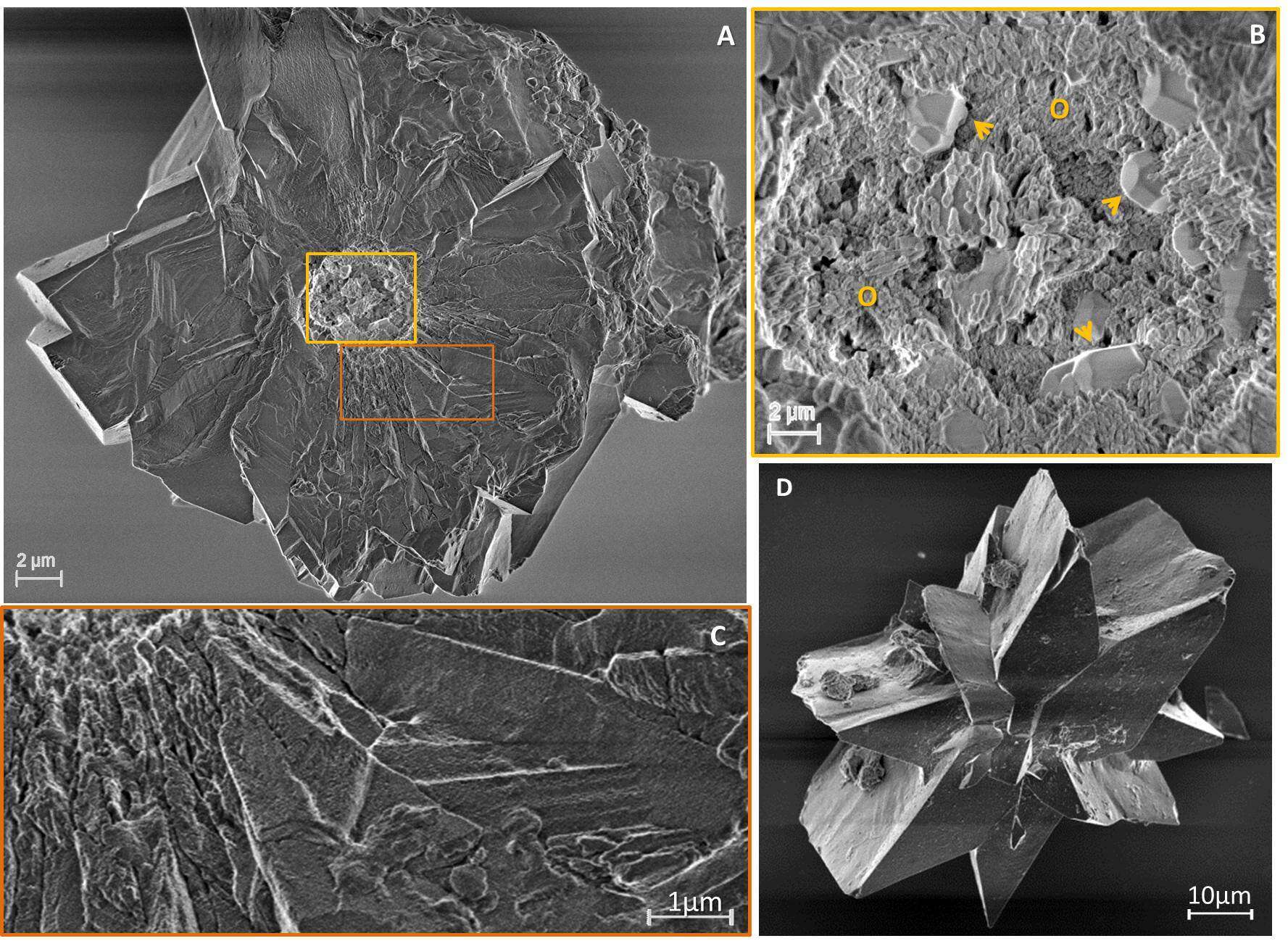
Structure and Formation of Calcium Oxalate Monohydrate Druses in Almond and Okra Leaves
Plant leaves produce a variety of calcium oxalate monohydrate crystals with different shapes and sizes. We know very little about the ways in which these biogenic crystals form. We focus on aggregates of crystals formed around an organic core (druses), with the aim of characterizing their morphology, structure and formation mechanism. In the area of the core, micron and submicron sized prismatic crystals are distributed between organic components (figure 1B). These small crystals represent the starting point for the growth of the faces forming the final morphology. The crystals grow radially from the core, competing with each other for growth space (figure 1C); the fastest growing crystals prevail over the others. In okra only eight to ten crystals contribute to the final morphology (figure 1D). An important role in regulating the crystal organization could be played by the crystal chamber.
Crystals grown in vitro develop a flat prismatic habit. At higher supersaturations the structures resemble the leaf druses. The expressed crystal faces are the same as those identified in the single crystals. Formation appears to be in part biologically controlled, and in part inorganically controlled.

Figure 1. SEM images. A-C) Almond druse. A) Section of a druse showing the core and crystals radiating from it. B) Core: with micron size prismatic crystals (arrowheads) and some organic content (O). C) Crystals growing radially from the center of the druse. D) Okra druse

Powered by Eventact EMS